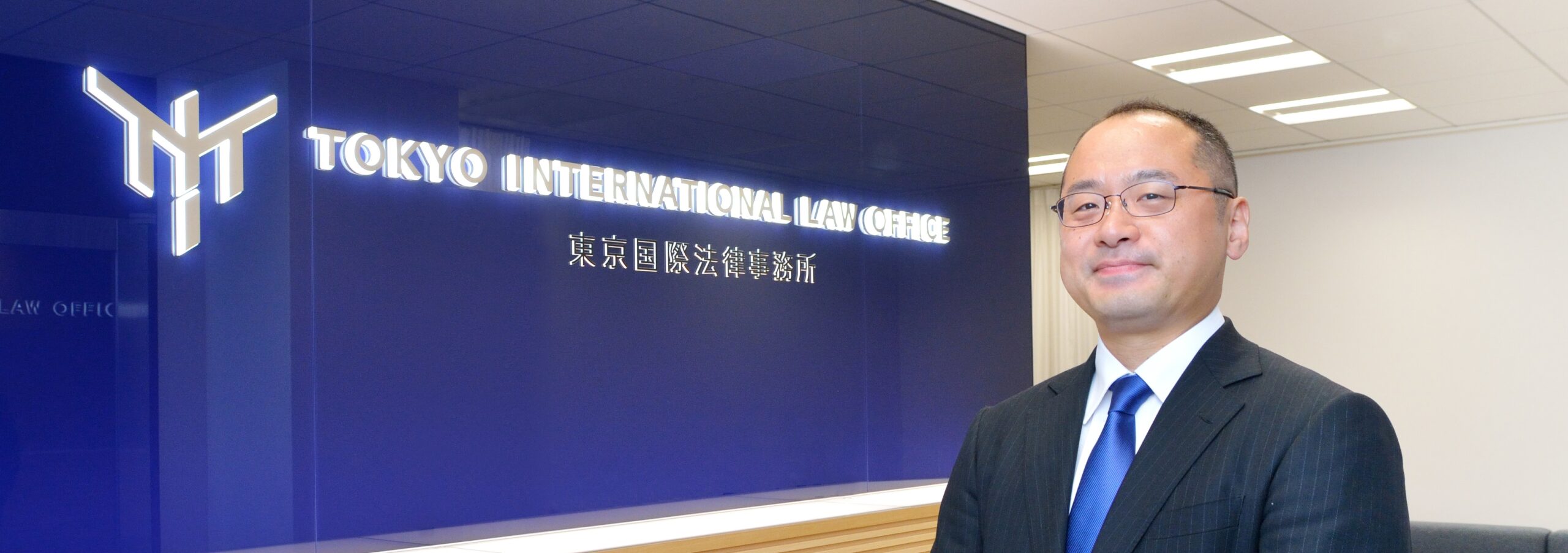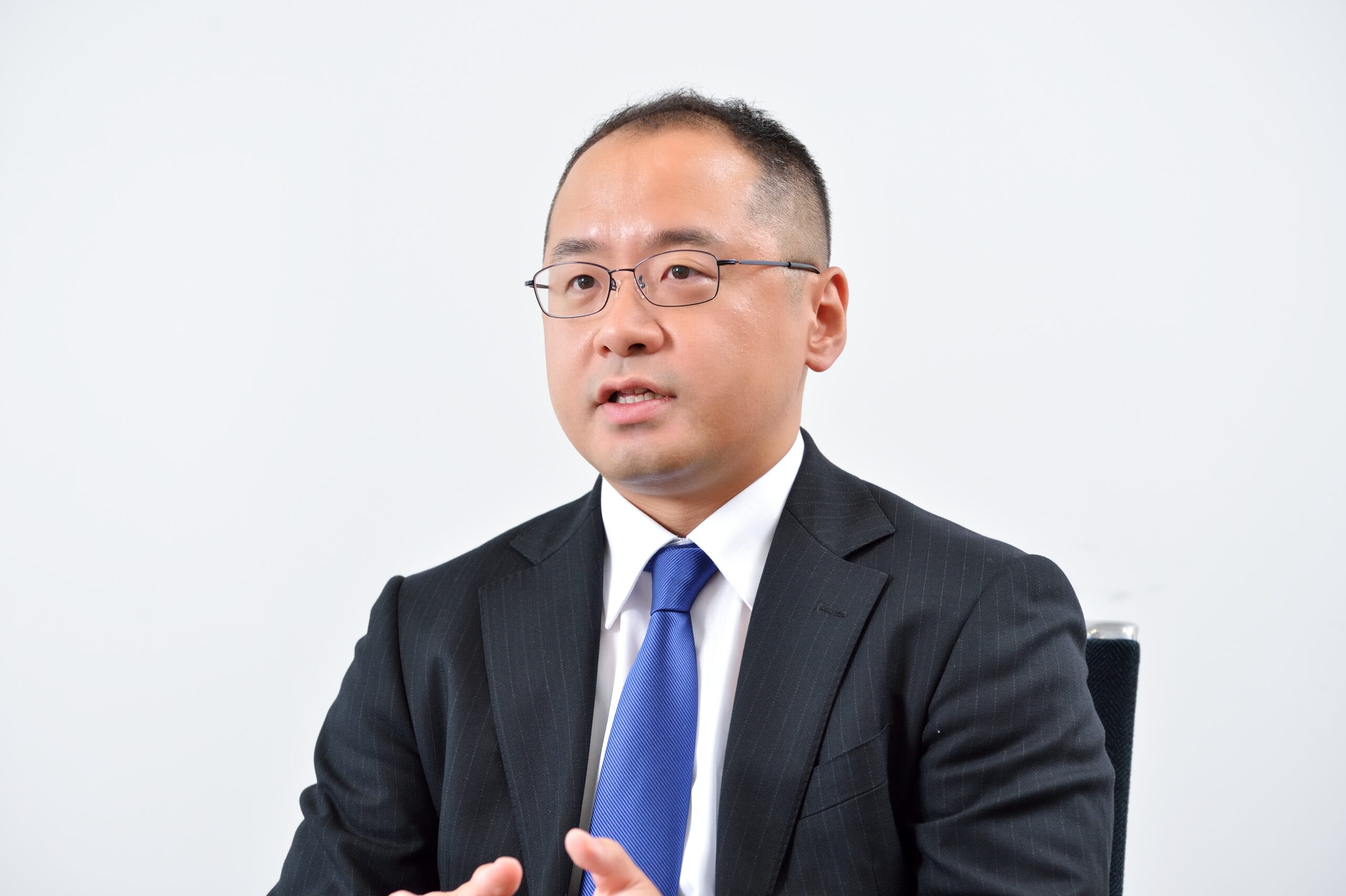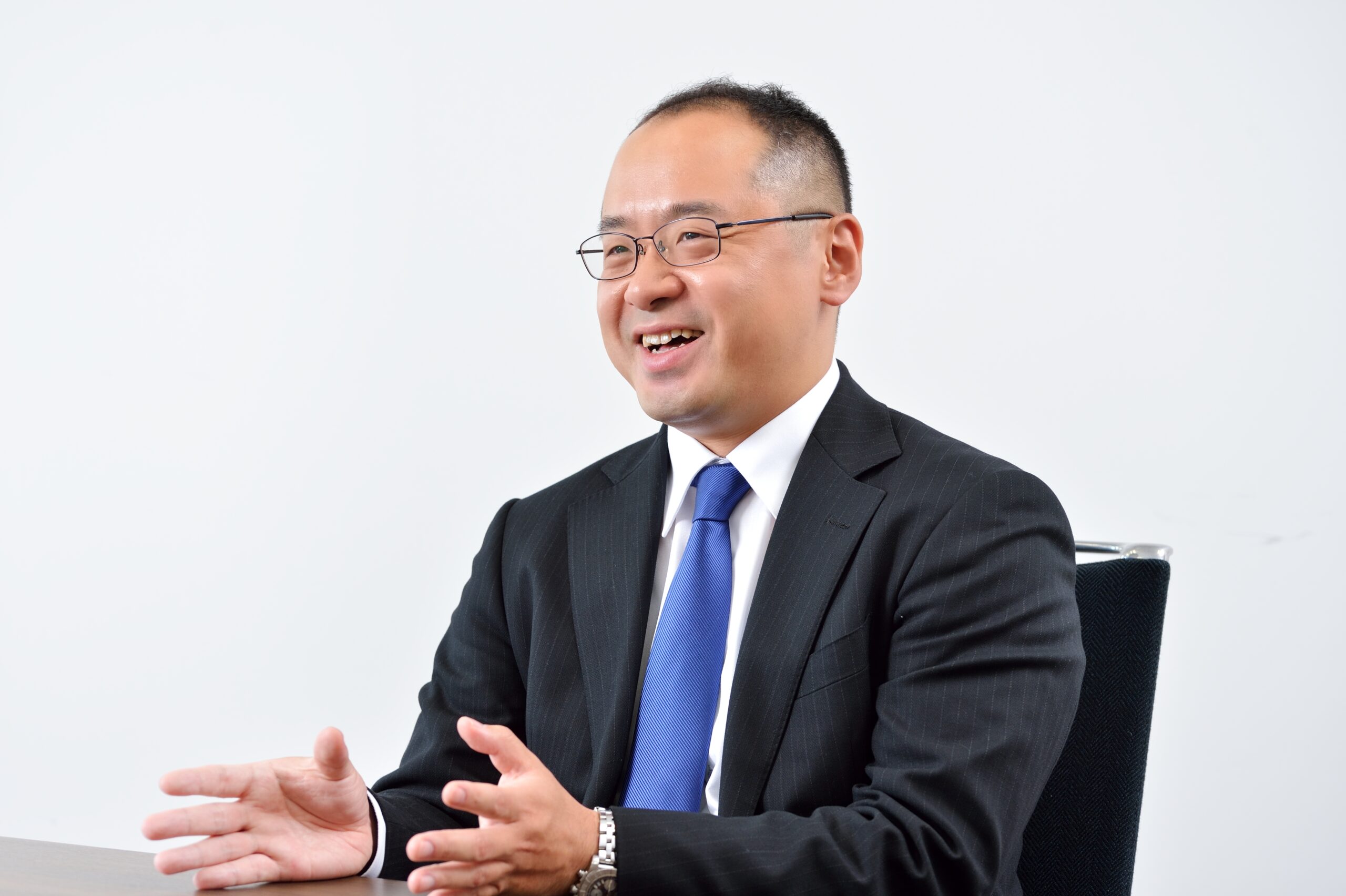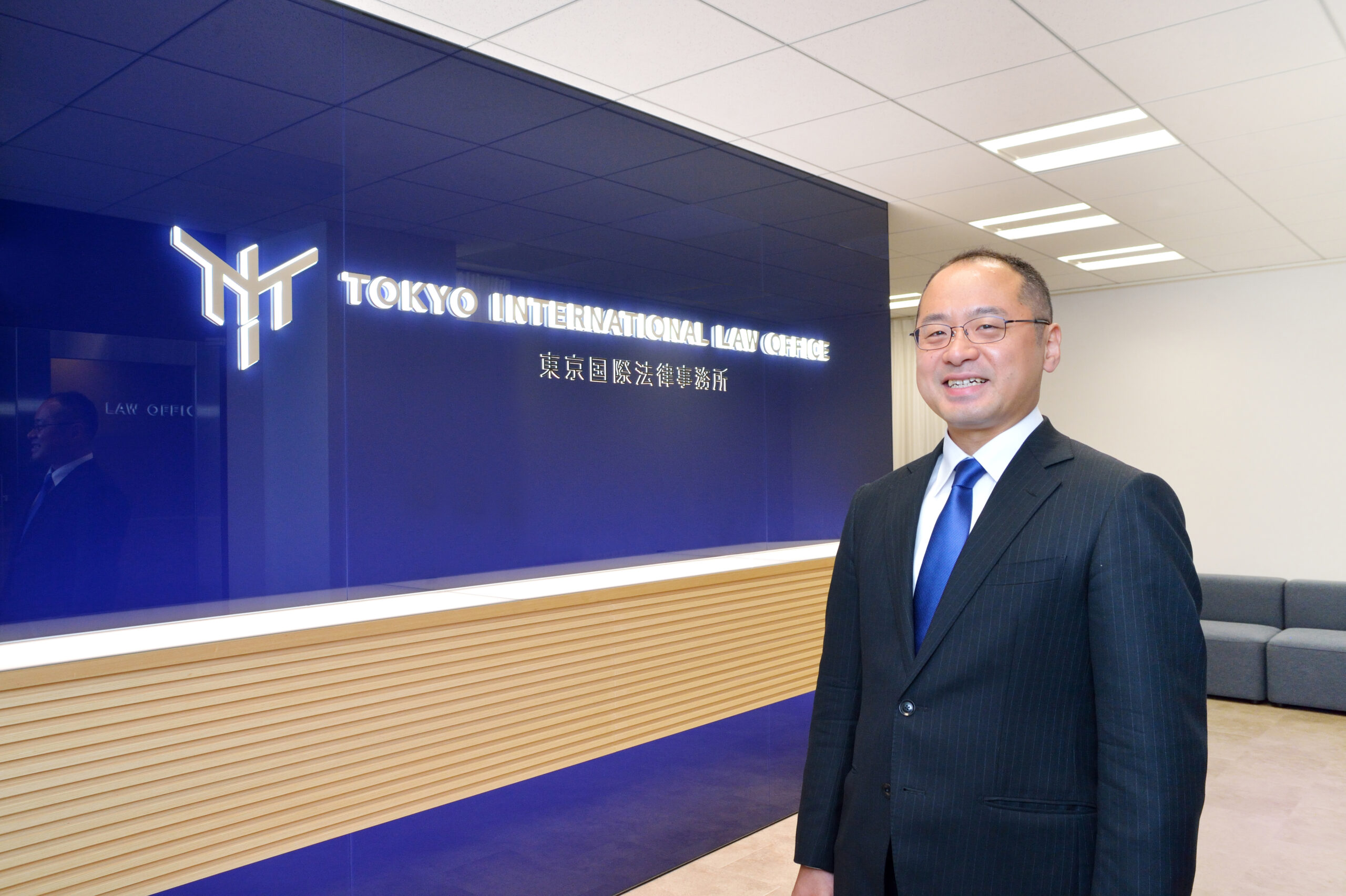June 24, 2025
From Prosecutor, Government Official, and Diplomat to Attorney — A Cross-Border Legal Professional Guided by a Commitment to Serve Others

Prosecutor, government official, and diplomat—Masayuki Otake has worn many hats throughout his 15-year career prior to his current title as an attorney. Driven by a deep belief in social justice and a desire to help those in need, he made the transition to private legal practice. Since August 2024, he has taken on a new challenge as a member of Tokyo International Law Office (TKI), bringing with him a wealth of global experience.
From a childhood fascination with mystery novels, to a desire in his youth to mediate conflicting values following September 11, and a career as a prosecutor dedicated to uncovering the truth—what led him to become an attorney despite such a rich career path? We sat down with Mr. Otake to explore his mission as a legal professional and his vision for the future, as he takes on work in areas including internal investigations, crisis management, criminal defense, and victim support.
The Starting Point: A Childhood Immersed in Mystery Novels
What first inspired you to pursue a legal career?
Looking back, I think it started with my love of mystery novels when I was in elementary school. I began with Edogawa Rampo and quickly devoured every title I could find in school and local libraries. That passion stayed with me through junior high and high school. I was captivated by stories in which a detective used logic and keen observation to help people in trouble. That was not a direct trigger, but I believe it had a strong influence on my values and the path I chose. Then, during high school, the September 11 attacks happened in 2001.
Was September 11 a turning point for you?
Definitely. After that, I started studying Islamic fundamentalism and religious value systems. I realized that what people believe to be “right” can differ dramatically, and those differences often lead to conflict and division. That is when I began wondering: in a world full of such clashes and suffering rooted in conflicting values, could I be of service for other people?
When I asked myself what I could do, I realized that I was good at studying law. I came to believe that law could serve as a tool for reconciling differing values, and that I could contribute to society through it. That is what led me to take the bar exam.
Responsibility Forged on the Site, and Perspective Gained Across Borders
You worked as a prosecutor in various offices starting in 2009. Could you walk us through your career?
For the first ten years, I was assigned to district prosecutor’s offices across Japan, from Yamagata to Ehime, handling a broad range of criminal cases. During that time, I also had an opportunity to study abroad in the UK.
After that, I was seconded to the Criminal Affairs Bureau at the Ministry of Justice for about a year and a half, where I dealt with international criminal matters—cases involving fugitives fleeing Japan or coming into Japan from abroad, or when foreign countries requested to collect and provide evidence located in Japan.

I also represented Japan in international conferences on criminal policy and negotiated with other countries on complex issues such as anti-bribery initiatives.
Following that, I was seconded to the Ministry of Foreign Affairs and spent three years as a diplomat at the Japanese Embassy in the UK. In my final year, I returned to the field to serve as a prosecutor at the Yokohama District Public Prosecutors Office.
How did those experiences shape your expertise?
There are two key areas: technical skills and professional mindset.
On the technical side, I developed what I would call the “ability to grasp the core of a case.” From limited facts and evidence, you need to form a hypothesis about what a case it is. If that hypothesis is accurate, you can collect the necessary evidence efficiently. That, in turn, leads to logic, arguments and courtroom strategies that hold up in court.
But more than anything, the most defining aspect of being a prosecutor is that from the day you are appointed, you must make decisions in your own name. You are given a case right away and asked to determine what punishment should be imposed on the person as well as to take responsibility for that in your name. Without cultivating the mindset to bear that responsibility from the outset, one cannot hope to earn the trust of the public through their work.
Was there a particular case that left a strong impression?
Yes. Early in my career, I had a case that made me painfully aware of my own limitations. The facts were complex and evidence was scarce, and in the end, I decided not to indict. But the victim and their family were devastated. One said, “If you cannot prosecute this, what’s the point of the police or prosecutors?”
That moment forced me to deeply reflect on why I had chosen this job. I wanted to help people, but in that case, I could not do anything. I began to wonder if there was not more I could have done as a prosecutor, even beyond the binary of indictment or non-indictment. Since then, I have tried to always be someone who can offer comfort and support, even if the final decision is not what the victim hoped for.
A New Path Discovered Amid the Pandemic in London
What led you to leave the prosecutor’s office and become an attorney?
At my core, I have always wanted to use my abilities to serve society. As I reflected on my experience, I started to feel that there might be other fields where I could make better use of my strengths. Prosecutors are expected to deliver consistent outcomes no matter who handles the case, to maintain fairness. But I wanted to bring something of myself into my work—to create value in a way only I could. My language skills and international perspective, for example, were underutilized as a prosecutor. I began to wonder if there were places where those unique qualities would be truly needed.
Working at the Japanese Embassy in the UK clarified my interests and strengths. I am the kind of person who has a lot of ideas about things I would like to try. But in government work or the prosecutor’s office, you typically respond to the tasks assigned to you. There is little room to initiate or expand projects on your own. I found myself drawn to a professional environment where I could chart my own path and choose how I contribute.
What happened during your time in the embassy that influenced your shift?
When I arrived in London in July 2020, the city was in full lockdown due to COVID-19. As a diplomat, I could not meet people in person and was unsure how to fulfill my role. Eventually, as online meeting infrastructure improved, I saw an opportunity. Formerly, it was nearly impossible for the heads of government agencies or courts to meet without international travel. But with video conferencing, they could talk from anywhere. That led me to organize the first-ever online meeting between the President Justices of the Japanese and British Supreme Court. Later, we also arranged an online meeting between both countries’ Ministers of Justice. These exchanges deepened mutual trust, and in July 2023, Japan’s Ministry of Justice signed its first-ever memorandum of cooperation with a G7 country—the UK. By the end of 2023, the President of the British Supreme Court officially visited Japan, another first. I truly felt that the relationships built during the pandemic had yielded something concrete.
Another unexpected benefit of the lockdown was that I had time to study English law thoroughly. I eventually earned a legal qualification in England, which helped build trust with local officials and legal professionals. Some even joked, “Masayuki might know our law better than we do.” It may have been flattery, but I felt I was able to build real trust.
Finding a Place That Encourages You to Say, “I Want to Try This”
Why did you choose TKI as your new professional home?
One of TKI’s strengths is the large number of international cases it handles. Even when the client is a Japanese company, the opposing party may be a foreign entity, or the matter may involve significant cross-border elements. Almost all the cases I have been involved in so far have had an international dimension. It is incredibly rewarding to work in an environment where I can put my English skills and international perspective to good use.
More than anything, though, what gave me confidence in this career transition was TKI’s culture—one that respects your experience and encourages you to explore a wide range of interests. From my first interview, Managing Partner Mikiharu Mori emphasized that the happiness of the lawyers themselves is essential. Here, you are free to choose your own path, and if you say, “I want to try this,” the answer is, “Go for it.” That openness and positive energy felt like a perfect fit for me.
Now that you have joined, how has the experience been?
I currently handle matters including fraud investigations, crisis management, compliance, and dispute resolution. But the range of work has far exceeded my expectations. I have even been entrusted with M&A matters, which align with my background and experience. I have found that adding insights from my time as a prosecutor and my international experience makes our proposals more dynamic and well-rounded. There have been moments when I have been genuinely surprised to find myself working on such a diverse array of matters.
The Power to Discern the Truth: The Foundation of My Legal Work
As a former prosecutor, what do you consider your greatest strength as an attorney?
My strength lies in the investigative skills I developed as a prosecutor. In fraud investigations, for example, you need to interview parties, witnesses, and others involved to uncover the truth—that is essentially what a prosecutor does.
But it is not just about conducting interviews. You need to determine whether the person is telling the truth, evaluate whether their story aligns with other evidence, and then compile your findings into a persuasive report backed by legal analysis. I have been through that process in thousands of cases, and that experience is directly applicable to my current work as a lawyer.

Are there any particular fields of law you hope to focus on going forward?
Cybersecurity is one area I am eager to tackle. With the ongoing evolution of technology, cyber threats are becoming increasingly serious. Many companies today are experiencing cyberattacks, and I handled cybercrime investigations as a prosecutor. Since there are still relatively few lawyers specializing in this area, I see it as an important opportunity.
In ransomware cases, for instance, the perpetrators are often overseas, making international cooperation essential. Deciding when to contact the authorities or how much information to disclose is often a tough call for companies. I believe my background enables me to provide valuable support in such situations.
I also work on criminal defense and victim support. Through these activities, I hope to help position TKI as a law firm that not only pursues commercial success but also takes its social responsibilities seriously.
Discovering Options Beyond “A or B”
Are there values from your time as a prosecutor that still guide your work as a lawyer?
What drew me to the work of a prosecutor in the first place was the fact that criminal cases often bring out the irrationality and raw emotions of human beings. Behind every incident on the margins of society, there are complex layers of human psychology at play. I have always had a deep interest in the question of “what it means to be human,” and in understanding the motivations behind people’s decisions and actions.
That same interest in humanity continues to shape my work as a lawyer. While companies may seem like abstract entities, they are ultimately made up of individual people. An officer at a legal department might be struggling with a conflict between what is expected of them institutionally or professionally and how they personally feel. Or, in interdepartmental disputes, someone might be trying to protect the interests of their own department.
It is important not just to respond to a client’s stated request, but to understand the real needs and context behind it. To do that, you need the sensitivity to pick up on the subtle cues of human behavior and emotion.
It sounds like some of your early struggles continue to guide you.

Yes. One of the most important lessons I learned early on is that “the answer is not always just A or B.” When I first started out, I thought the prosecutor’s role was limited to deciding whether to indict or not. But over time, I realized that the best response is often somewhere in between.
As a lawyer, I do not simply frame things in terms of winning or losing a case. I am constantly thinking about what outcome is truly best for the client. To do that, the first step is to carefully listen and fully understand what the client is going through.
You have had a diverse career as a prosecutor, government official, diplomat, and now an attorney. What kind of legal professional do you hope to become 10 years from now?
Right now, my focus is on facing each case sincerely and earning the trust of my clients. I want people to feel glad they chose to consult with me. And 10 years from now, I hope to be the kind of lawyer whom clients specifically ask for by name, saying they want Otake to handle their case. I want to become a legal professional who possesses both solid expertise and the kind of personal integrity that earns lasting trust. That is the goal I will continue to work toward.
(Written and interviewed by Hitomi Suto; photographs by Nobuhisa Iwata)
